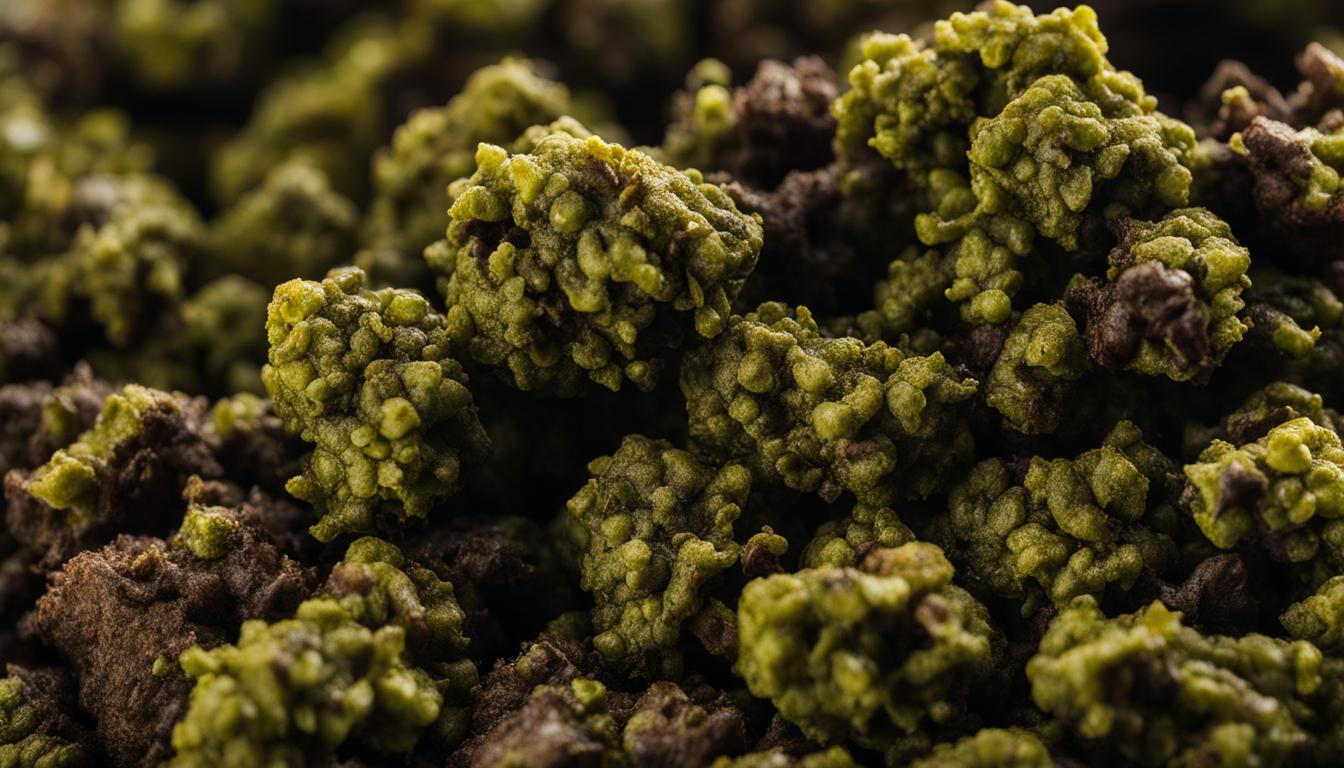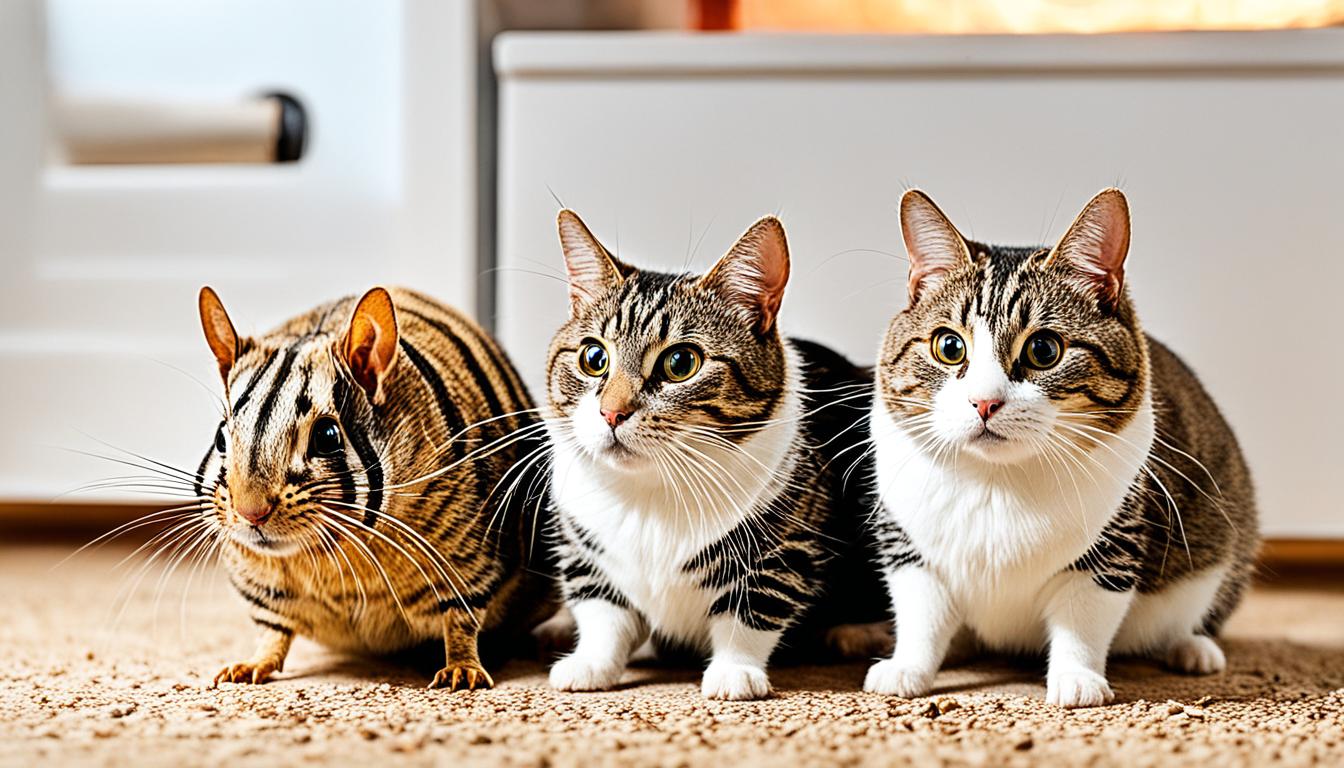Understanding Chronic Diarrhea in Cats
When it comes to the health of our feline companions, chronic diarrhea is a condition that can cause concern. Chronic diarrhea in cats is characterized by diarrhea that reoccurs frequently over time, with stool consistently softer than normal and lasting for several weeks or longer. It can affect cats of all breeds and ages, with kittens, senior cats, and immunocompromised cats being most susceptible to serious complications (PetMD).
Overview of Chronic Diarrhea
Chronic diarrhea in cats can be caused by diseases affecting the intestines or gastrointestinal system, as well as diseases affecting other parts of the body where diarrhea occurs as a result. Some common causes include:
- Inflammatory bowel disease
- Intestinal parasites
- Bacterial infections
- Viral infections
- Food allergies
- Vitamin deficiencies
- Ingestion of foreign objects
- Metabolic diseases
- Stress and anxiety
Identifying the underlying cause of chronic diarrhea is crucial in developing an effective treatment plan. Therefore, it is important to consult a veterinarian if your cat experiences persistent diarrhea for more than 24-48 hours.
Causes and Symptoms
The symptoms of chronic diarrhea in cats may vary depending on the underlying cause. Some common symptoms to watch for include:
Number 1 veterinarian-recommended cat probiotic brand to support digestive health (Kantar Veterinary Tracker, 2021), making it an excellent cat supplement
- Abnormal stool color
- Fresh blood in the stool
- Straining to defecate
- Increased frequency of defecation
- Weight loss
- Increased or decreased appetite
- Decreased energy level
- Vomiting
- Dehydration
- Increased flatulence
If you notice these symptoms persisting for more than 24-48 hours, it is recommended to seek veterinary attention to determine the cause and appropriate treatment for your cat.
To diagnose chronic diarrhea in cats, veterinarians may conduct various diagnostic tests, including:
- Complete blood count/blood chemistry test
- Thyroid test
- Fecal test
- Urinalysis test
- Infectious disease test
- Fecal PCR test
- Absorption test
- X-rays
- Abdominal ultrasound
- Endoscopy/colonoscopy
- Biopsies
These tests help veterinarians identify the underlying causes of chronic diarrhea and develop a tailored treatment plan for your cat.
Understanding the causes and symptoms of chronic diarrhea in cats is the first step in addressing this condition. In the subsequent sections, we will explore the diagnosis, treatment options, and preventive measures for managing chronic diarrhea in cats.
Diagnosing Chronic Diarrhea
When a cat experiences chronic diarrhea, it is essential to determine the underlying cause in order to develop an effective treatment plan. Diagnosing chronic diarrhea in cats involves a comprehensive veterinary examination and various diagnostic tests.
Veterinary Examination
To begin the diagnostic process, veterinarians conduct a thorough examination of the cat. They review the cat’s detailed medical history, which may include information about vaccination and deworming history, recent travel, diet regimen, prescription medications, and nutraceuticals. A careful examination of the cat’s environment, exposure to parasites, infectious agents, drugs, or toxins is also important.
During the examination, the veterinarian will assess the cat’s overall health, look for signs of dehydration or weight loss, and palpate the abdomen to check for any abnormalities. This initial evaluation helps the veterinarian gather important information that will guide further diagnostic testing.
Diagnostic Tests
To pinpoint the cause of chronic diarrhea, veterinarians may recommend various diagnostic tests. These tests provide valuable insights into the cat’s health and help identify specific underlying factors contributing to the chronic condition.
Some common diagnostic tests for chronic diarrhea in cats include:
- Complete Blood Count (CBC): This test evaluates the cat’s red and white blood cell counts, providing information about potential infections or inflammation.
- Blood Chemistry Test: A blood chemistry test assesses the cat’s organ function and checks for any abnormalities in liver and kidney enzymes, electrolyte imbalances, and hormone levels.
- Thyroid Test: If the cat is older or shows signs of hyperthyroidism, measuring thyroid hormone concentrations may be necessary.
- Fecal Test: A fecal test helps identify parasites, such as worms or protozoa, that may be causing diarrhea. It can also detect the presence of blood or abnormal bacteria.
- Urinalysis: A urinalysis provides information about kidney function and helps rule out urinary tract infections as a cause of diarrhea.
- Infectious Disease Test: This test assesses the presence of infectious agents, such as viruses or bacteria, which may contribute to chronic diarrhea.
- Fecal PCR Test: Polymerase Chain Reaction (PCR) testing can detect specific pathogens or genetic material associated with gastrointestinal diseases.
- Abdominal Ultrasound: An abdominal ultrasound allows veterinarians to visualize the internal organs and identify any abnormalities, such as tumors or inflammation.
- Endoscopy/Colonoscopy: These procedures involve using a flexible tube equipped with a camera to examine the gastrointestinal tract and collect tissue samples for further analysis.
- Biopsies: Biopsies involve obtaining small tissue samples for microscopic examination, helping to identify underlying inflammatory or neoplastic conditions.
By performing these diagnostic tests, veterinarians can gather comprehensive information about the cat’s health, identify potential causes of chronic diarrhea, and tailor an appropriate treatment plan.
Understanding the underlying factors contributing to chronic diarrhea is crucial for effective management and improving the cat’s overall well-being. In the next section, we will explore different treatment options, including dietary management and medication, to help alleviate chronic diarrhea in cats.
Treatment Options
When it comes to managing chronic diarrhea in cats, there are various treatment options available. The approach to treatment will depend on the underlying cause of the diarrhea and may involve dietary management, medication, and supplements.
Dietary Management
Dietary management plays a crucial role in the treatment of chronic diarrhea in cats. It is often recommended to switch to a highly digestible and easily tolerated diet. This can help reduce gastrointestinal irritation and improve nutrient absorption. In some cases, a prescription diet formulated specifically for cats with sensitive stomachs or gastrointestinal issues may be recommended.
Studies have shown that dietary management can be effective in cats with chronic diarrhea. However, it’s important to note that the fat content of the diet does not have a significant impact on the outcome of the treatment (PubMed). If your cat does not respond to dietary changes within three weeks, further evaluation may be necessary. For more information on dietary recommendations for cats with chronic diarrhea, refer to our article on chronic diarrhea in cats diet.
Medication and Supplements
In addition to dietary management, medication and supplements may be prescribed to help manage chronic diarrhea in cats. The specific medications and supplements recommended will depend on the underlying cause and the cat’s individual needs.
Medications such as anti-inflammatory drugs, antibiotics, antidiarrheal medications, and immunosuppressive drugs may be prescribed to address the underlying cause of the diarrhea. These medications aim to reduce inflammation, combat bacterial or parasitic infections, and modulate the immune response.
Supplements can also play a beneficial role in managing chronic diarrhea in cats. Probiotics, for example, may help restore the balance of beneficial bacteria in the gut, promoting healthy digestion and reducing diarrhea. Other supplements, such as fiber or digestive enzymes, may also be recommended to support gastrointestinal health.
It’s important to note that the specific treatment approach will vary depending on the individual cat and the underlying cause of their chronic diarrhea. Your veterinarian will be able to provide a tailored treatment plan based on a thorough examination and diagnostic tests. Always follow your veterinarian’s guidance and closely monitor your cat’s response to treatment.
By implementing appropriate dietary management, administering prescribed medications, and incorporating beneficial supplements, you can help manage chronic diarrhea in cats and improve their overall digestive health. Regular communication with your veterinarian is essential to ensure the most effective treatment plan for your feline companion. For more information on the symptoms and causes of chronic diarrhea in cats, refer to our article on chronic diarrhea in cats symptoms.
Chronic Diarrhea in Specific Cat Breeds
While chronic diarrhea can affect cats of any breed, certain cat breeds may be more prone to this condition. Understanding the breed-specific risks can help cat owners and veterinarians provide targeted care. Below are some cat breeds that may have a higher predisposition to chronic diarrhea:
Persian Cats
Persian cats have a regal and luxurious appearance, but they are susceptible to certain inherited disorders. Chronic kidney disease, including polycystic kidney disease (PKD), is a common inherited disorder in Persian cats and related breeds. PKD is a condition where fluid-filled cysts form in the kidneys, leading to kidney dysfunction. It is inherited as a simple autosomal dominant trait, meaning the disease is determined by a single gene. Cats with the abnormal gene will be clinically affected, and there are no unaffected “carrier” cats.
Bengal Cats
Bengal cats are known for their striking coat patterns and playful personalities. However, they may be prone to certain hereditary health issues. These can include cataracts, progressive retinal atrophy (PRA), and hypertrophic cardiomyopathy (HCM). Hypertrophic cardiomyopathy is a feline heart disease characterized by the thickening of heart muscles, which can result in symptoms such as lethargy, difficulty breathing, congestive heart failure, and arrhythmias.
Ragdoll Cats
Ragdoll cats are known for their docile and affectionate nature. While generally healthy, they can be prone to certain health conditions. These may include hypertrophic cardiomyopathy (HCM) and polycystic kidney disease (PKD). Additionally, Ragdolls may be at risk for obesity, blood clots, and cryptococcosis, a fungal disease that can cause chronic sneezing, nasal discharge, breathing difficulties, blindness, and seizures.
Siamese Cats
Siamese cats are known for their striking blue eyes and vocal nature. Like other purebred cats, they may have a higher risk of certain health conditions. Siamese cats are more prone to certain cancers, such as mediastinal lymphoma and intestinal adenocarcinomas. They may also be susceptible to progressive retinal atrophy (PRA), asthma, hip dysplasia, arthritis, and pica (eating non-food items) (The Wildest).
Scottish Fold Cats
Scottish Fold cats are recognized for their unique folded ears, which give them an adorable appearance. While not directly associated with chronic diarrhea, it’s important to note that Scottish Folds may be prone to certain health conditions, such as osteochondrodysplasia, which can affect the joints and cause mobility issues. Regular veterinary care and monitoring are crucial for maintaining the overall health and well-being of Scottish Folds.
Understanding the potential health risks associated with specific cat breeds can help cat owners and veterinarians take proactive measures to manage and prevent health conditions. Regular veterinary check-ups, genetic testing, and responsible breeding practices are essential for ensuring the health and longevity of cats, regardless of their breed.
Genetic Factors and Inherited Diseases
When it comes to chronic diarrhea in cats, genetic factors and inherited diseases can play a significant role. Understanding these factors is crucial for identifying the root causes and implementing appropriate management strategies. In this section, we will explore the impact of inbreeding and the advancements in genetic testing.
Impact of Inbreeding
Inbreeding, which refers to the mating of closely related individuals, is commonly practiced in the breeding of pedigree cats. However, this practice can increase the risk of inherited defects and diseases in the offspring. Some pedigree breeds are more inbred than others, potentially putting them at a greater risk of inherited diseases.
One such inherited disorder is polycystic kidney disease (PKD), which is prevalent in Persian cats and related breeds. PKD is an autosomal dominant disorder, meaning it is determined by a single gene. Cats with an abnormal gene will be clinically affected, and there are no unaffected “carrier” cats. The disease can result in the formation of cysts in the kidneys, leading to kidney dysfunction and premature death of affected cats (International Cat Care).
To reduce the risk of inherited diseases, responsible breeding practices are essential. Breeders should prioritize genetic diversity and avoid excessive inbreeding. By doing so, the frequency of certain inherited disorders can be minimized, ensuring the health and well-being of future generations of cats.
Genetic Testing Advancements
Advancements in genetic testing have revolutionized the field of feline genetics. These advancements have allowed for the identification of gene defects associated with inherited conditions in cats. Through genetic testing, breeders and veterinarians can now identify affected cats and carriers before breeding, helping to prevent the transmission of genetic diseases to future generations.
Genetic testing enables breeders to make informed decisions by identifying cats with genetic mutations associated with specific disorders. By excluding cats with these mutations from breeding programs, the frequency of inherited diseases can be significantly reduced. For example, DNA testing for PKD in Persian cats has been successful in reducing the frequency of this inherited disorder in certain breeding lines.
The availability of genetic tests allows breeders to select suitable breeding pairs based on their genetic profiles, reducing the likelihood of passing on inherited diseases. Additionally, pet owners can also benefit from genetic testing as it can provide valuable information about their cat’s predisposition to certain inherited conditions.
By embracing responsible breeding practices and utilizing the advancements in genetic testing, breeders and cat owners can work together to minimize the prevalence of inherited diseases in cats. This proactive approach not only promotes the health and well-being of individual cats but also contributes to the overall improvement of breed populations.
In the next section, we will explore preventive measures and responsible breeding practices that can further support the health of cats and reduce the risk of inherited defects.
Preventive Measures and Responsible Breeding
When it comes to addressing and preventing chronic diarrhea in cats, taking preventive measures and practicing responsible breeding are essential. By understanding the causes and impact of inherited defects, cat owners and breeders can make informed decisions to promote the health and well-being of their feline companions.
Avoiding Inherited Defects
Inherited defects, such as polycystic kidney disease (PKD), are a significant concern in certain cat breeds. For example, Persian cats and related breeds have a high prevalence of PKD, with up to 50% or more of Persian cats being affected by this condition, which can lead to premature death of affected cats (International Cat Care). PKD in Persian cats is inherited as a simple autosomal dominant trait, which means that cats with an abnormal gene will be clinically affected, and there are no unaffected “carrier” cats (International Cat Care).
To avoid inherited defects, responsible breeders should prioritize genetic testing before breeding. Genetic testing advancements have allowed for the identification of gene defects associated with inherited conditions in cats, enabling the development of diagnostic tests to identify affected cats and carriers. By implementing these tests and excluding cats with inherited defects from breeding programs, breeders can make significant strides in reducing the frequency of these disorders.
Responsible Breeding Practices
Responsible breeding practices are crucial in ensuring the overall health and well-being of cats. Inbreeding in pedigree cats increases the risk of inherited defects, and some pedigree breeds are more inbred than others, potentially putting them at a greater risk of inherited diseases (International Cat Care). Therefore, it is essential for breeders to carefully consider the genetic diversity within their breeding programs.
Responsible breeders should prioritize DNA testing for inherited diseases like PKD and other known genetic defects. Testing cats before breeding helps identify carriers and ensures that only healthy cats without genetic abnormalities are used for breeding purposes. This practice plays a crucial role in reducing the frequency of inherited disorders and promoting the overall health of future generations of cats.
By actively avoiding inherited defects and practicing responsible breeding, cat breeders and owners can contribute to the long-term health and well-being of their feline companions. These measures help to minimize the risk of chronic diarrhea and other health conditions, ensuring that cats can live happy and healthy lives. For more information on preventing chronic diarrhea and managing other aspects of cat health, explore our article on chronic diarrhea in cats.






